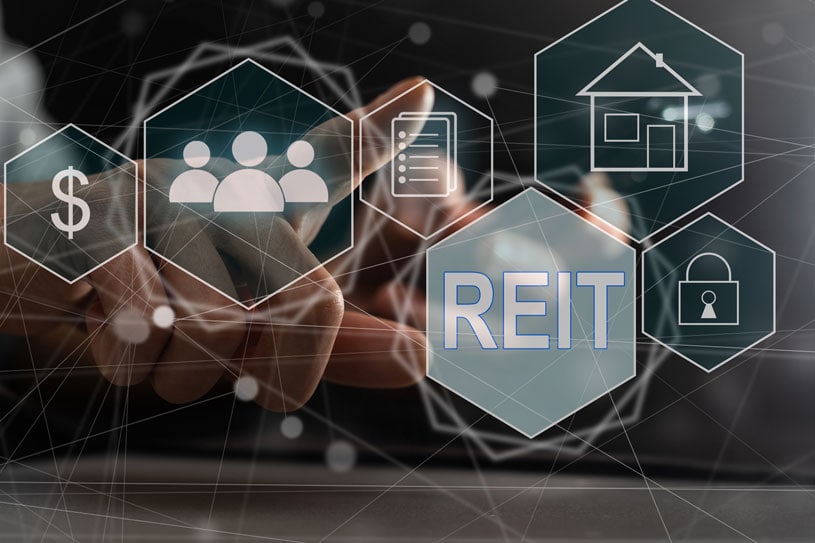Being a property owner or landlord, one of the biggest issues you face is trying to control maintenance costs. Before you know it, maintenance starts piling up over time and drains your profit, leaving you frustrated. Whether it’s leaky pipes, electrical problems, or just general wear and tear, which is common in any rental unit, maintenance costs are usually unpredictable and, at times, overwhelming.
However, there’s one simple trick that could save you thousands of dollars on property maintenance: Proactive property maintenance. By regularly inspecting and maintaining your property, you can prevent costly repairs, extend the lifespan of key systems, and avoid emergency situations that require expensive fixes. It might sound straightforward, but many property owners neglect this vital step, only to find themselves facing large repair bills when things go wrong.
In this article, we shall explain how this simple strategy works and how its implementation can save you a lot of money in the long run.
1. Understand the Importance of Proactive Maintenance
Proactive maintenance is the practice of performing regular checks and maintenance tasks before problems arise. In contrast, reactive maintenance happens when issues are left unaddressed until something breaks down, often resulting in expensive emergency repairs.
Think of it as the difference between maintaining your car with regular oil changes and waiting for the engine to fail before doing anything about it. A well-maintained car runs smoothly and lasts longer, while a neglected car is more prone to breakdowns, which can be costly.
When applied to property management, proactive maintenance works the same way. Small issues caught in their infancy prevent much larger issues that would be far costlier to correct later on.
2. Create a Preventative Maintenance Schedule
The first step to implementing proactive maintenance is creating a preventative maintenance schedule. By identifying key areas that need regular attention, you can plan ahead for inspections and repairs, reducing the chances of unexpected breakdowns.
Some common maintenance tasks to include in your schedule are:
– HVAC System: Heating and cooling systems need regular inspection and servicing to ensure they are functioning properly. Change filters every 1-3 months, have an annual inspection for efficiency, and schedule repairs if unusual sounds or inefficiencies arise.
Plumbing: Inspect pipes and faucets for leakage, water heaters for signs of corrosion, and clean drains to avoid blockages. Since leaks or any other plumbing issues can easily be identified well in advance, huge damages due to water can be prevented. Roofing: Take a regular look at your roof for broken shingles or leaks, particularly after a storm. It costs a fortune to repair roofs, while small issues prevent costly replacements.
– Appliances: Make sure the refrigerators, dishwashers, washers, and dryers are running efficiently. Keep them clean and catch minor issues before they become major repairs.
– Exterior: Gutters should be cleaned, and the siding and windows should not show damage; likewise, there should be no signs of wear and tear or infestation.
By scheduling regular checks for these areas, you can catch small issues before they escalate. This proactive approach helps you avoid large, expensive repairs and keeps tenants happy with a well-maintained property.
3. Address Minor Repairs Immediately
One of the key benefits to proactive maintenance is catching issues early before they become expensive. Many of those small leaks in pipes or cracked windows may be fairly minor initially, but when left unattended, these minor problems can turn into major damage. For instance,
a leak in a pipe can eventually cause water damage that grows mold. This mold remediation could cost thousands of dollars.
The small crack in a window may let moisture in, causing wood rot, insulation issues, or higher energy bills. Minor appliance malfunctions, if left untreated, could eventually lead to full appliance breakdowns requiring expensive replacements.
By addressing minor repairs immediately, you’ll prevent these problems from snowballing into much larger, more expensive issues. This practice can save you thousands of dollars in repair costs over time.
4. Use High-Quality Materials and Fixtures
While saving money by opting for cheaper materials or fixtures might seem smart, it will actually cost more in the long run. Low-quality materials may wear out faster and require more frequent repairs; this increases your overall maintenance cost. For example, high-quality flooring or plumbing fixtures could require a higher initial investment but will often last longer, reducing the need for repairs or replacements.
More investment in durable, high-quality materials could yield a better return. From choosing durable, low-maintenance flooring to deciding on more efficient appliances, making these investments at the outset can help lower your maintenance costs in the future.
5. Hire a Reliable Property Manager
If you have multiple properties or simply don’t have the time to manage the ongoing maintenance yourself, consider hiring a property manager. A good property manager will be proactive with maintenance tasks, handle repairs, and oversee inspections to make certain that your property is maintained to the highest standard.
A property manager can also help you find trustworthy contractors, negotiate prices, and oversee work to make sure it’s done right the first time. While you will pay for their services, often the cost is very well worth it because they help you avoid expensive mistakes and make sure the maintenance gets done promptly.
6. Regularly Check for Compliance Issues
Another often-overlooked area of property maintenance involves making sure that your property conforms to local building codes and regulations. Many areas necessitate safety measures such as smoke detectors, carbon monoxide detectors, fire escapes, among others. Failure to do this may result in costly fines, possible legal issues, or even upgrades to your property, which can be costly.
Proactive maintenance is not only about addressing the physical repairs but also about ensuring your property remains compliant with the local laws and regulations. It includes periodic inspection of safety features, ensuring all electrical systems meet the code, and keeping your rental property up to date with the latest regulations.
7. Regularly Clean and Maintain Common Areas
Clean and well-kept common areas are very important for multiunit properties. Keeping hallways, staircases, lobbies, and laundry rooms regularly cleaned keeps the tenants happy and avoids costly repairs that may be needed later on. Cleaning the gutters on a routine basis can help prevent water from overflowing and causing damage to the building’s foundation. Keeping shared appliances maintained also ensures they do not break down and need costly replacements.
Proactive cleaning and maintenance of shared spaces also minimize the occurrence of accidents and injuries that may cause costly liability claims.
8. Maintain a Reserve Fund for Unexpected Expenses
Even with proactive maintenance, unexpected issues do arise. From natural disasters to sudden system failures, it’s always a good idea to have a reserve fund for property maintenance. This will provide the opportunity to rapidly remedy any surprise repairs that you encounter without having to scramble around to find money to cover the fix or to worry about cash flow problems.
Setting aside a small percentage of your rental income each month for this fund ensures that you’re prepared for emergencies and can take care of urgent repairs without putting a strain on your finances.
Conclusion
Proactive property maintenance is a simple but effective way to save thousands of dollars in maintenance costs. You can keep your property in great condition and avoid costly, emergency repairs by creating a regular maintenance schedule, addressing minor repairs immediately, using quality materials, and ensuring legal compliance.
While it does take some effort to stay on top of these tasks, the long-term savings will far outweigh the time and energy invested. For landlords and property owners, adopting a proactive maintenance strategy is one of the smartest decisions you can make to protect both your property and your bottom line.










